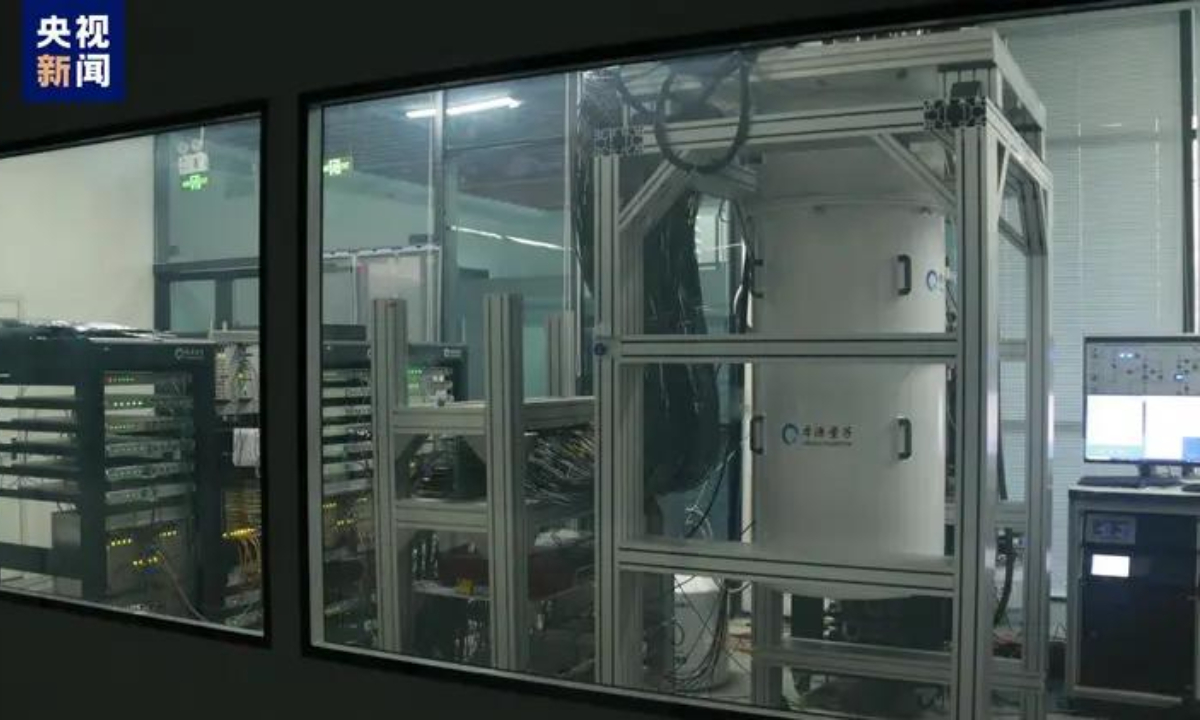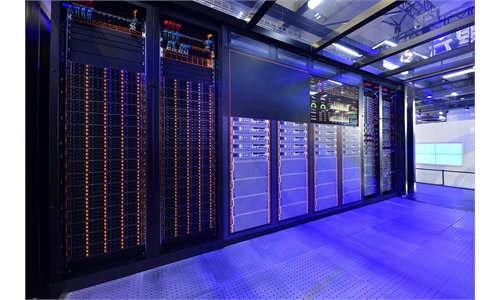
Third-generation superconducting quantum computer "Origin Wukong". File photo:CCTV
China's indigenous third-generation superconducting quantum computer, Origin Wukong, began operation on Saturday at Origin Quantum Computing Technology (Hefei) Co, East China's Anhui Province.The step is a fresh result of China's intensifying research and development in cutting-edge technologies, experts said. It will improve China's technological innovation capability despite the reckless suppression by some Western countries.
The quantum computer is powered by Wukong, a 72-qubit indigenous superconducting quantum chip. It is China's latest and most advanced programmable and deliverable superconducting quantum computer, according to a statement the company sent to the Global Times on Saturday.
Kong Weicheng, deputy director of the Anhui Quantum Computing Engineering Research Center, said that the computer is integrated with a third-generation quantum computing control system, which enhances the overall operational efficiency of the quantum computer many times over.
Wukong's name was inspired by Sun Wukong, a mythical Chinese figure with the ability to transform into 72 different forms, symbolizing the computer's powerful and versatile capabilities.
"The quantum computer indicated that China has made practical progress in strategic science and technology areas amid technology blockades imposed by some Western countries," Yuan Lanfeng, a research fellow at the Hefei National Research Center for Physical Sciences at the Microscale under the University of Science and Technology of China, told the Global Times on Sunday.
Yuan noted that through specific algorithms, quantum computing is expected to offer enhanced computational power compared with traditional computers, especially in realms like cryptography, material design and drug analysis.
Realizing the practical value of quantum computing requires much effort, with a long-term competition between classical algorithms and quantum computing hardware, said Yuan.
The global landscape for quantum computing is on an accelerated trajectory, where countries and technology behemoths, including IBM and Google, are engaged in a spirited race. Governments and industries are doubling down on research investments and policy support for quantum computing, according to the Xinhua News Agency.
In 2022, China for the first time explicitly proposed accelerating the research and development and application promotion of cutting-edge technologies such as quantum computing.
In October 2023, Chinese scientists unveiled a quantum computer prototype named Jiuzhang 3.0 with 255 detected photons, once again pushing the boundaries of photonics quantum computing technology.
That step made China the second country to achieve quantum computational advantage, also known as "quantum supremacy," indicating an overwhelming quantum computational acceleration that is currently not feasible for traditional computers, Xinhua reported.

